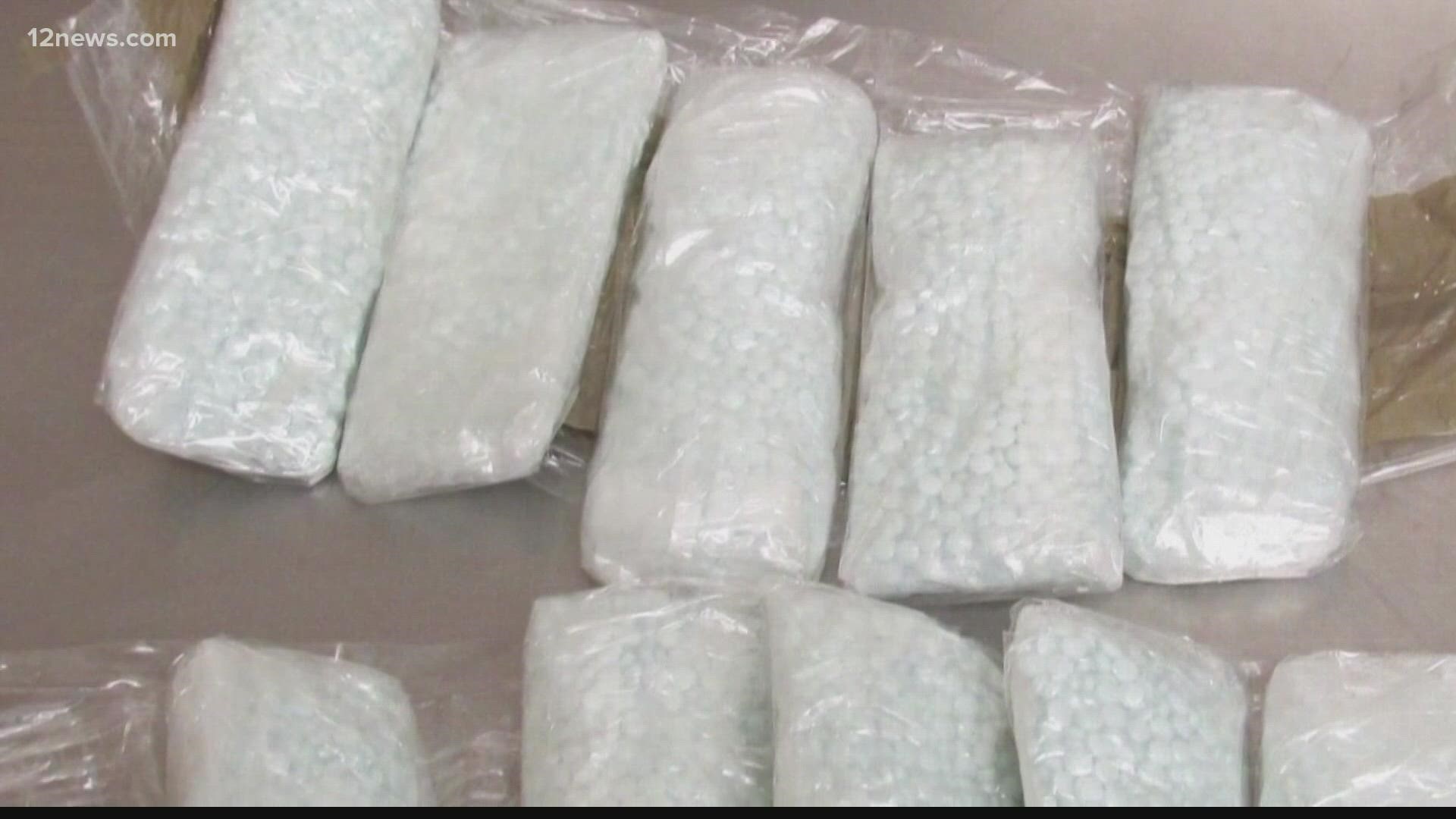ARIZONA, USA — Editor's note: The video above is from a newscast on Sept. 27.
Just over three years ago, rapper Mac Miller was found dead in his Los Angeles home of "mixed drug toxicity" including fentanyl. The man who police say supplied the drugs that killed him was sentenced to 17 years in prison after pleading guilty.
But Miller's overdose isn't an isolated incident. According to the CDC, more than 800,000 people nationwide have died from some kind of drug overdose since 1999. More than 70,000 in 2019 alone.
Arizona had the 10th highest death rate related to drugs with 1,907 in 2019.
Fentanyl has become more prevalent in those deaths over time. It is a synthetic drug designed originally for pain relief and has potency 50 to 100 times greater than morphine.
Like in Miller's case, fentanyl is being mixed in with other drugs and being sold illegally without warning. A dose as low as 2mg can be potentially lethal.
12 News has covered incidents of teens dying from a fatal dose of the opioid after purchasing the drug on social media apps like Snapchat.
The National Institute on Drug Abuse said that in 2018, Arizona providers wrote approximately 50.7 opioid prescriptions per 100 people. The average U.S. rate is 51.4 prescriptions per 100 people.
- Family history of substance use
- Favorable parental attitudes towards the behavior
- Poor parental monitoring
- Parental substance use
- Family rejection of sexual orientation or gender identity
- Association with delinquent or substance-using peers
- Lack of school connectedness
- Low academic achievement
- Childhood sexual abuse
- Mental health issues
Resources:
The Substance Abuse and Mental Health Services Administration’s (SAMHSA) National Helpline may be able to help. You can call them at 1-800-662-HELP (4357).
Up to Speed
Catch up on the latest news and stories on the 12 News YouTube channel. Subscribe today.

